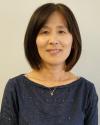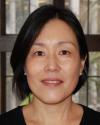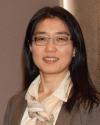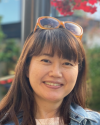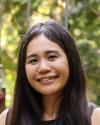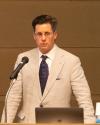
With more than 125 million native speakers, Japanese is the eighth most widely spoken language in the world and the national language of a world economic powerhouse. It is among the world's great languages of science, technology, and commerce. Japanese immigrants and their descendants form vibrant communities in the United States (such as in Seattle), Canada and in many other countries around the world.
Japanese is also the vehicle of a literary culture spanning 13 centuries. The 11th century Tale of Genji, for example, is reckoned among the classics of world literature. In the 20th century, two Japanese writers, Yasunari Kawabata and Kenzaburô Ôe, have been awarded the Nobel Prize for literature. Acclaimed content produced in modern Japanese pop culture — including books, films, and anime — flourishes as part of a language that has been utilized by some of the world’s most imaginative and influential storytellers.
Our Programs
Our undergraduate and graduate programs offer a wide range of courses, including a multi-track advanced language program with training in classical Japanese and sino-Japanese.
- B.A. in Japanese
- Minor in Japanese
- M.A. in Japanese
- Ph.D. in Japanese
- Upcoming Courses
- Textbook Information
Japanese can also be an area of emphasis in the following programs:
- B.A. in Asian Languages and Cultures
- Minor in Asian Languages and Cultures
- M.A. in Asian Languages and Cultures
- Ph.D. in Asian Languages and Cultures
Students can also gain professional training and experience in teaching and conducting empirical research in Asian languages via UW's Graduate Certificate in Second/Foreign Language Teaching, which can be added to any graduate degree.
Why study Japanese at the UW?
Our Japanese program has a long and rich tradition, and it is recognized today for the world-class quality of its faculty and degree programs. Our department’s close links with other departments on campus create opportunities for students to undertake cross-disciplinary studies, including with the Department of Linguistics, the Jackson School of International Studies and the Foster School of Business (where options include a Certificate of International Studies in Business).
On campus, the program hosts a visiting scholar from Japan each spring, expanding research opportunities for our students and deepening our links with the Japanese academic world. It also hosts many lectures and colloquia on campus, some in conjunction with other academic units. The University library system includes the East Asia Library, which is home to more than 130,000 volumes in Japanese, ranking among the top ten university-based collections of Japanese materials in the United States.
Nearby in Seattle, students can find large and vibrant Japanese and Japanese-American communities and an active arts scene, offering many opportunities to experience Japanese culture firsthand. In addition, the city’s location on the Pacific Coast provides opportunities for travel to Japan and other parts of Asia, including through the UW’s study abroad opportunities.
Textbooks
The textbooks for Japanese Language instruction can be acquired through the University Bookstore. These are the current textbooks:
- First-year Japanese (JAPAN 101-102-103, & Summer Intensive Japanese, JAPAN 134): Tobira Beginning Japanese 1, including Textbook and Workbook (1st Edition, published in 2021)
- Second-year Japanese (JAPAN 201-202-203, & Summer Intensive Japanese, JAPAN 234): Genki 2, including Textbook and Workbook (3rd Edition)
- Third-year Japanese (JAPAN 301-302-303, & Summer Intensive Japanese, JAPAN 334): Tobira Gateway to Advanced Japanese, including Textbook and Workbook (1st Edition, published in 2009), Chapters 1-9
- Fourth-year Japanese (JAPAN 401-402-403): Tobira Gateway to Advanced Japanese, including Textbook and Workbook (1st Edition, published in 2009), Chapters 10-15, and other authentic materials
If you need a refresher on first- or second-year Japanese, or to prepare for your upcoming Japanese course, review the resources at the following links:
First-year Japanese Review: https://canvas.uw.edu/
Second-year Japanese Review: https://canvas.uw.edu/enroll/

